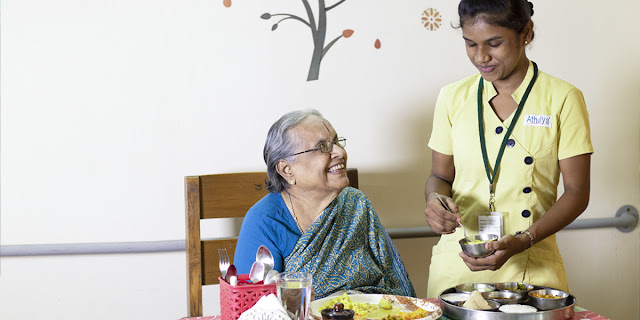Diet for Elders after 65
“HEALTHY EATING PROMOTES HEALTHY AGING”
Every year on June 7th, World Food Safety Day is commemorated. Food safety is important at every stage of the food chain, from production to harvest, refining, transit, delivery, preparation, and usage. Age and gender have different nutritional needs. Younger and older persons may require slightly different foods and beverages to maintain a balanced diet. We will require fewer certain foods and more of others in general. As you get older, your eating habits will change based on your gender; older men and women have different nutritional needs.
Importance of a healthy diet:Eating a well-balanced diet is crucial to keeping older adults healthy. It can assist in maintaining a healthy weight, remaining energized, and obtaining the nutrients they require. It also reduces the chances of having chronic illnesses like heart disease and diabetes. If elders are confined to their beds or do not exercise regularly, muscle loss can occur, increasing the risk of falls and broken bones. A proper diet is required for the construction, repair, and maintenance of healthy bones and muscles. Intake of healthy foods lower the risks of getting food allergy.
Meal tips for seniors:
- Low sodium diet: To help minimize the risk of diseases including high blood pressure, diabetes, and heart disease, eat a variety of foods from each food group. Select foods that are low in added sugar, saturated fats, and foods with low sodium.
- Protein diet: Add fish, dairy, or fortified soy products, as well as beans, peas, and lentils, to your meals to obtain enough protein throughout the day and maintain muscle. Find out more about protein and other key nutrients. All meats, fish, eggs, and seafood, as well as dairy and soy products such as tofu and soy drinks, are excellent sources of protein. Beans and pulses, such as baked beans, all nuts and seeds, and whole grains are also good sources.
- Plant-based diet: Fruits and vegetables, sliced or chopped, can be added to meals and snacks. Vegetarian diet foods stimulate quick digestion, thus it's always a good idea to eat them. Drink plenty of water throughout the day to stay hydrated and to help with digestion and nutrition absorption. Sugary drinks should be avoided.
- Vitamin D and calcium are essential for strong bones. These should be obtained from the best food sources possible.
- Breakfast: Try egg, sardines, leftover meat, or cheese on toast for breakfast;
- Lunch: Try egg, sardines, leftover meat, or cheese on toast for lunch. eat some ham or cheese and construct an open sandwich with tuna or sardines.
- Dinner: Have a glass of milk or a banana smoothie Serve poultry, fish, or eggs with melted cheese on broccoli or cauliflower, and for dessert, ice cream, yogurt, or custard with fruit.




Comments
Post a Comment